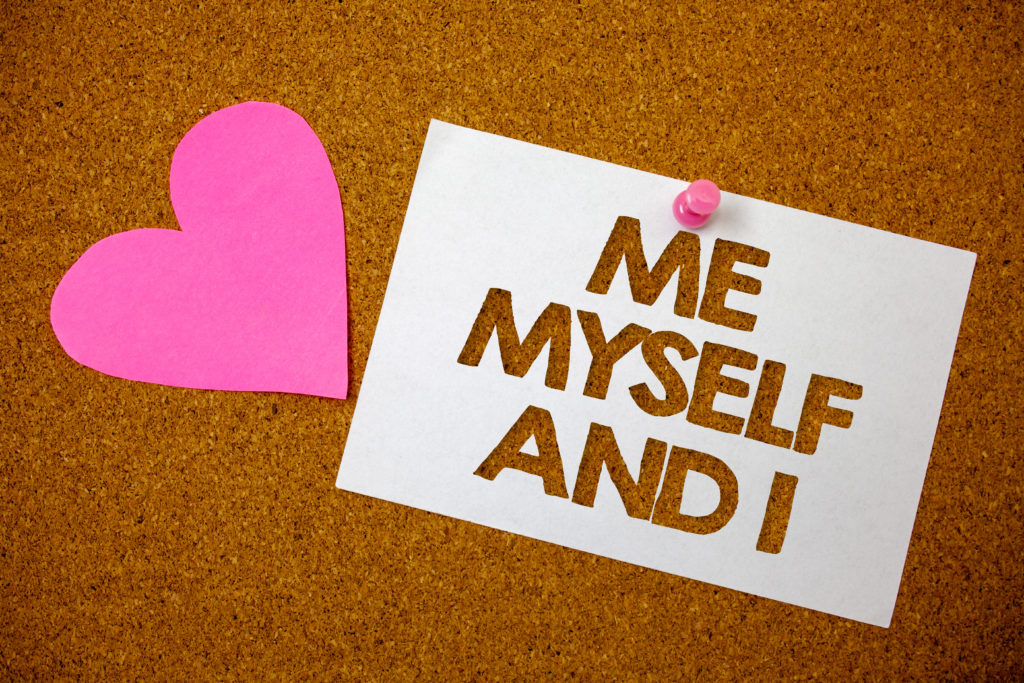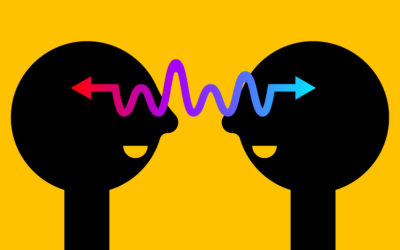Can self-love help your brain?
Self-love sounds like a good idea but it can be double-edged sword. Narcissism is clearly not a positive trait, and on the other side self-criticism can help you grow. I explore the ups and down and probably what we mean by self love.

I went through a phase of going to meditation courses and groups a few years ago. It did me good I am sure – I have read the science. It certainly felt good at times. Funnily enough my desire to meditate slowly evaporated as I worked more with the SCOAP model and that is insightful in itself. During these meditation sessions a common theme was love thyself, self-compassion, and not beating yourself up. Interesting is that these were proposed as if this was the natural state of affairs. Which can lead us to surmise that 1. not loving yourself is the standard nature of human beings, or alternatively 2. not loving yourself is a common feature of those who are attracted to meditation.
Indeed, if we read online motivational blogs, self-criticism is a common theme – so indeed it does appear to be considered a key theme and therefore common. However, in trying to review the academic literature to get a grip on how common this is, I found it difficult to find any solid research to give an indication of how widespread this is. However, some work I did on the SCOAP model and self-esteem may give us something to get a grip on.
In our data on SCOAP we found that the desire for Self-Esteem was consistently ranked as the number one need therefore making this the most important human need on average. This is interesting because it shows that we have a high desire for self-esteem, and this is consistent in human beings. But what is also interesting is that if this Is rated highly it also means that damage and non-fulfilment is also likely to cause disruption. If I want high self-esteem and don’t achieve it, it will cause a mismatch – and therefore also an emotional reaction. Dissatisfaction or frustration of sorts. So, in short, self-esteem appears to be our most powerful need meaning we are most sensitive to damage or threat to it.
Also, within self-esteem there are multiple factors at play which I have analysed in much more detail in my analysis and presentation at the BPS Coaching Psychology Conference in 2015 – first, is that there is a strong social component, something called the Sociometer (first proposed by Leary et al. in 1995). We tend to rank ourselves against others and through we may blame society and systems in society – this is unfair, we do it automatically, it is instinctive. We do compare ourselves to others no matter how often we say, “Don’t compare yourself to others”.
This comparison though, goes through different stages, with teenagers being particularly sensitive to various social comparisons. To be embarrassed is a big thing in teenage years, as my teenage daughter keeps telling me. As we age this becomes less important and we become less sensitive to various forms of showing ourselves up. Of note is also what is known as the spotlight effect, which teenagers are particularly sensitive to, is that we overestimate how much attention people take of us, as shown neatly in an experiment by Gilovich et al. in 2000: he got youngsters to wear a yellow Barry Manilow t-shirt (yes, that bad) to a gathering and then measure how many people remembered or noticed this. The result was hardly at all. In stark contrast to how the t-shirt wearers felt.
But a problem with this social comparison is that it can lead to the majority of the population being self-critical or believing they are sub-par. Though we do tend to have an overconfidence bias in many areas – we believe we are above average, on average, most of the time, we may also be sensitive to the fact that we are not amongst the best in any domain. This is because we naturally look upwards – many of you know I am a competitive athlete and my 800m running time in 2021 was 50th best in the world in my age category. Was I happy with this? No, I wasn’t! I am now looking to be in the top 25, no mean feat, but my natural ambition and dedication means that I am now measuring myself not in terms of top 100 in the world, and not even the top 50, but the top 25 – that gives me plenty of room for self-criticism and musing on whether I really have the ability to get there.
The other side of self-criticism is also that to move on and be good in life we should be critical – in my running I could be happy with being in the top 50 in the world or I can set my ambition to be in the top 25 – if I set my ambition to be in the top 25, I am more likely to improve than if I sit on my laurels and pat myself on the back for my performances in 2021. So, in this context self-criticism, at some level, is a good thing. It drives individuals forward, on a cycle of ever improving and reaching higher heights. And indeed, some of my best performances have come after a bad performance where I have beat myself up about my own inability. A contradiction? Maybe.
So far:
-
- Self-Esteem is consistently ranked as the most important need in SCOAP
- Self-esteem is multi-faceted
- A common form of self-esteem is social comparison (the “sociometer”)
- This sociometer is as often implicit as often as it is explicit (we often “feel” judged)
- Teenagers are particularly sensitive to social comparisons and judgements
- Being self-critical can also lead to personal growth
So, with this, what about self-criticism? Is this a good or bad thing? Well, the research seems to show that it is a bad thing – though it may drive a number of us onto higher performances, it also drives more people into despair, frustration, and general feelings of low self-esteem. Being self-critical is considered a risk factor for many psychopathologies and research has shown that those who score high on self-criticism have worse outcomes in therapy.
So, it seems that more self-love is in order – and research mostly into meditation shows that self-compassion seem to be a route to this. Forgiving oneself rather than not criticising oneself in the first place. It could also be that self-criticism is no bad thing but that rumination, the act of dwelling on this is likely to be the key culprit. Being critical can help to improve oneself but dwelling on all those negative aspects leads to a constant state of stress and chronic low self-esteem which, as we know, is detrimental to brain and physical health.

The other question to ask is whether this is a trait or state. Are some of us chronically low on self-esteem and have a shaky sense of self and are self-critical while others of us have a natural high sense of self-worth, sense of self, and are barely self-critical? Or is it state and domain specific i.e. depending on the context and situation – are we self-critical in some areas, domains, such as work, or sports, or with certain people? The research shows that it is a mix of these three as Zuroff et al. discussed in a meta-analysis in 2021. There is a strong element of trait self-esteem and self-confidence, but this is also influenced by situation, life stages, and contexts.
Of course, we can’t talk about self-criticism and self-love without talking about the other extreme and that of narcissism. It can also seem as if, for many, a sense of community, modesty, and sensitivity to others, leads us to avoid self-praise. Potentially for fear of being seen to be arrogant and “above” others. Modesty after all is universally considered a positive trait. And this is where self-love can truly become self-love and we become selfish narcissists. Observing the motivational literature this does not seem to be the case – people do not tend to go to a self-compassion meditation session and come out self-possessed narcissists – mostly due to the trait signatures we mentioned above (and meditation is often also focused on compassion for others).
However, two factors do point to society becoming more individualistic and narcissistic. One a recent piece of research showed that having choice makes us more selfish. The rise of social media and the selfie – has also given to an increase in narcissism – those who often post selfies are considered by peers to be more narcissistic. On the counter side we also know that it is the minority who engage so intensively with social media – teenagers as I noted earlier are particularly sensitive to social comparison so may tend to be more narcissistic also, as well as more self-critical, they are after all hyper aware of themselves.
Narcissism is viewed negatively in all societies but also has multiple negative effects with those who are most narcissistic being completely unaware of their shortcomings – however, in one study this was shown to be beneficial to themselves at least. Some of the happiest people it was shown are the most ignorant. Ignorance is bliss.
So far:
-
- Higher levels of self-criticism are correlated with multiple mental health disorders
- Higher levels of self-criticism are related to worse outcomes in psychotherapy
- Narcissism is considered a negative condition
- Narcissism is related to multiple negative outcomes and impacts
- Narcissists and particularly ignorant narcissists are, however, on average, happy
So where does this leave us? Well at this stage I would come back full circle to the SCOAP model, and some research done by Kernis at the start of the noughties. Kernis reviewed Self-Esteem and found a number of inconsistencies – for example being chronically low in self-esteem had fewer negative outcomes than having a wildly swinging self-esteem. Therefore, fragile self-esteem is more worrying on all levels: this is when we may desire high self-esteem, feel fantastic if we achieve something positive, but also are extremely sensitive to the downsides, beating ourselves up when we fail at something, or don’t achieve what we have set out to. Kernis therefore proposed authenticity as the key. He characterized authenticity as “the unobstructed operation of one’s true, or core, self in one’s daily enterprise.” He proposed four components to authenticity:
-
- Awareness of self and others
- Unbiased processing of self
- Alignment in behaviour and action
- Honesty in social relationships
I would add to this, the idea of growth and a growth mindset. The above four aspects proposed by Kernis could without growth lead to stagnation. So, according to Kernis it is not necessarily loving oneself that is the key, it is accepting oneself, and importantly still having a growth mindset, so not letting this make you a static person with no growth potential. And with this self-awareness will likely also come realistic goal setting which is something I have learned to do for myself over the years and this has also lead to a more secure sense of self – yes this applies to my running also where I have set ambitious goals but am aware of how ambitious they are and any physical limitations – my times at various distances point to me being able, in theory at least, to run a faster 800m time.
Summary:
-
- Aim for authenticity
- Learn to accept your core personality
- Learn to be aware of your personality and your impact on others
- Make sure your behaviours and actions align with your core personality
- Be honest with yourself but avoid beating yourself up
- Be honest and open in your social relationships – also with who you are
- Keep a growth mindset
- Exercise self-compassion if you are prone to beating yourself up – be kind to yourself
And so, with this and you may wonder how this applies to my running – by the time you read this I will probably be competing at the European Masters Athletic Championships (indoor). Well, I have realigned my goals based on my racing times this year. I have a clear racing strategy and a clear expectation – but also know that if it doesn’t work on the day, well, it doesn’t work. Whatever, I will enjoy the experience, meeting the other athletes, and being able to push my body to its limit – of which I am thankful. Will I be critical? A little, maybe…but then the focus will turn to the World Championships in June!
But back to healthy brains – though we know there is a trait-specific aspect of self-criticism, being overly self-critical leads to stress and in turn lower health and mental wellbeing outcomes. It is good when it drives you to higher performance and higher achievement, but if it leads to rumination and constant internal criticism it is not a good place to be. Learn to be kind to yourself – for your brain and your health!

Andy Habermacher
Andy is author of leading brains Review, Neuroleadership, and multiple other books. He has been intensively involved in writing and research into neuroleadership and is considered one of Europe’s leading experts. He is also a well-known public speaker speaking on the brain and human behaviour.
Andy is also a masters athlete (middle distance running) and competes regularly at international competitions (and holds a few national records in his age category).
References
Self-Esteem
Eisenberger, N. I., Inagaki, T. K., Muscatell, K. A., Byrne Haltom, K. E., and Leary, M. R. (2011). The Neural Sociometer: Brain Mechanisms Underlying State Self-esteem. J. Cogn. Neurosci. 23, 3448–3455.
Gilovich, T., Medvec, V. H., and Savitsky, K. (2000). The spotlight effect in social judgment: An egocentric bias in estimates of the salience of one’s own actions and appearance. J. Pers. Soc. Psychol. 78. doi:10.1037/0022-3514.78.2.211.
Habermacher, A., Ghadiri, A., and Peters, T. (2015). Untangling Self-Esteem. Oral Present. 5th Eur. Coach. Psychol. Conf. 2015 December 11-12; London, United Kingdom.
Kernis, M. H. (2003). Toward a Conceptualization of Optimal Self-Esteem. Psychol. Inq. Vol 14(1), 1–26. doi:10.1207/S15327965PLI1401_01.
Kernis, M. H., Cornell, D. P., Sun, C. R., Berry, A., and Harlow, T. (1993). There’s more to self-esteem than whether it is high or low: the importance of stability of self-esteem. J. Pers. Soc. Psychol. 65, 1190–1204. doi:10.1037/0022-3514.65.6.1190.
Kolubinski, D. C., Marino, C., Nikčević, A. V., and Spada, M. M. (2019). A metacognitive model of self-esteem. J. Affect. Disord. doi:10.1016/j.jad.2019.05.050.
Leary, M. R., Tambor, E. S., Terdal, S. K., and Downs, D. L. (1995). Self-Esteem as an Interpersonal Monitor: The Sociometer Hypothesis. J. ol”Personality Soc. Psychol. 68, 518–530. doi:10.1207/S15327965PLI1403&4_15.
Self-Criticism
Aruta, J. J. B. R., Antazo, B. G., and Paceño, J. L. (2021). Self-Stigma Is Associated with Depression and Anxiety in a Collectivistic Context: The Adaptive Cultural Function of Self-Criticism. J. Psychol. Interdiscip. Appl. 155. doi:10.1080/00223980.2021.1876620.
Aruta, J. J. B. R., Antazo, B., Briones-Diato, A., Crisostomo, K., Canlas, N. F., and Peñaranda, G. (2021). When Does Self-Criticism Lead to Depression in Collectivistic Context. Int. J. Adv. Couns. 43. doi:10.1007/s10447-020-09418-6.
Campos, D., Cebolla, A., Quero, S., Bretón-López, J., Botella, C., Soler, J., et al. (2016). Meditation and happiness: Mindfulness and self-compassion may mediate the meditation-happiness relationship. Pers. Individ. Dif. 93, 80–85. doi:10.1016/j.paid.2015.08.040.
Halamová, J., Jurková, V., Kanovský, M., and Kupeli, N. (2018). Effect of a Short-Term Online Version of a Mindfulness-Based Intervention on Self-criticism and Self-compassion in a Nonclinical Sample. Stud. Psychol. (Bratisl). 60. doi:10.21909/sp.2018.04.766.
Hollis-Walker, L., and Colosimo, K. (2011). Mindfulness, self-compassion, and happiness in non-meditators: A theoretical and empirical examination. Pers. Individ. Dif. 50, 222–227. doi:10.1016/j.paid.2010.09.033.
Joeng, J. R., and Turner, S. L. (2015). Mediators between self-criticism and depression: Fear of compassion, self-compassion, and importance to others. J. Couns. Psychol. 62. doi:10.1037/cou0000071.
Löw, A. C., Schauenburg, H., and Dinger, U. (2020). Self-criticism and psychotherapy outcome: A systematic review and meta-analysis. Clin. Psychol. Rev. 75. doi:10.1016/j.cpr.2019.101808.
Neff, K. D. (2011). Self-compassion, self-esteem, and well-being. Soc. Personal. Psychol. Compass 5, 1–12. doi:10.1111/j.1751-9004.2010.00330.x.
Samaie, G., and Farahani, H. A. (2011). Self-compassion as a moderator of the relationship between rumination, self-reflection and stress. in Procedia – Social and Behavioral Sciences doi:10.1016/j.sbspro.2011.10.190.
Zuroff, D. C., Clegg, K. A., Levine, S. L., Haward, B., and Thode, S. (2021). Contributions of trait, domain, and signature components of self-criticism to stress generation. Pers. Individ. Dif. 173. doi:10.1016/j.paid.2020.110603.
Zuroff, D. C., Clegg, K. A., Levine, S. L., Hermanto, N., Armstrong, B. F., Haward, B., et al. (2021). Beyond trait models of self-criticism and self-compassion: Variability over domains and the search for signatures. Pers. Individ. Dif. 170. doi:10.1016/j.paid.2020.110429.
Narcissism
Littrell, S., Fugelsang, J., and Risko, E. F. (2020). Overconfidently underthinking: narcissism negatively predicts cognitive reflection. Think. Reason. doi:10.1080/13546783.2019.1633404.
Raskin, R., Novacek, J., and Hogan, R. (1991). Narcissism, self-esteem, and defensive self-enhancement. J. Pers. 59, 19–38.
Campbell, W. K., Hoffman, B. J., Campbell, S. M., and Marchisio, G. (2011). Narcissism in organizational contexts. Hum. Resour. Manag. Rev. 21, 268–284.
Doty, J., and Fenlason, J. (2013). Narcissism and toxic leaders. Mil. Rev. 93, 55–60.
Zitek, E. M., and Jordan, A. H. (2016). Narcissism Predicts Support for Hierarchy (At Least When Narcissists Think They Can Rise to the Top). Soc. Psychol. Personal. Sci. 7. doi:10.1177/1948550616649241.
Social Media and Society
Andreassen, C., Pallese, S., and D. Griffiths, M. (2017). Addictive use of social media, narcissism, and self-esteem. Addict. Behav. 64.
Fegan, R. B., and Bland, A. R. (2021). Social media use and vulnerable narcissism: The differential roles of oversensitivity and egocentricity. Int. J. Environ. Res. Public Health 18. doi:10.3390/ijerph18179172.
Singh, S., Farley, S. D., and Donahue, J. J. (2018). Grandiosity on display: Social media behaviors and dimensions of narcissism. Pers. Individ. Dif. 134. doi:10.1016/j.paid.2018.06.039.
More Personal Performance Articles
The Negative Social Impact of Dealing with AI in the Workplace
Different areas of the brain are associated with empathy – this new research shows how brain regions synchronise to induce empathic responses.
New Discoveries for Brain Health, Memory, and Learning
Reading time: about 8 minutes As you know I tend to take a deeper dive into various themes for subscribers but sometimes I also find that the sheer amount of research continuously published make it a hard choice of what to focus on. So this week some updates on...
Young Blood Rejuvenates the Brain
Reading time: about 9 minutes Yup, Count Dracula was onto something - well as long as he was sucking the blood for youngsters that is. No wonder he was considered immortal (except those pesky limitations such as daylight and crucifixes). The story of young blood is...
Work in the Presence of Others Lowers Stress
Different areas of the brain are associated with empathy – this new research shows how brain regions synchronise to induce empathic responses.
Newly Discovered Ebb and Flow of Brain Chemicals that Drive Learning – Continuously
Different areas of the brain are associated with empathy – this new research shows how brain regions synchronise to induce empathic responses.
Everyday Pleasures Improve Brain Performance
Different areas of the brain are associated with empathy – this new research shows how brain regions synchronise to induce empathic responses.






